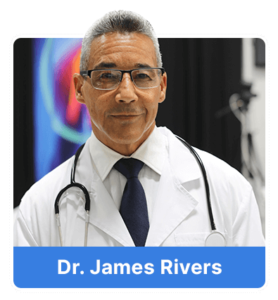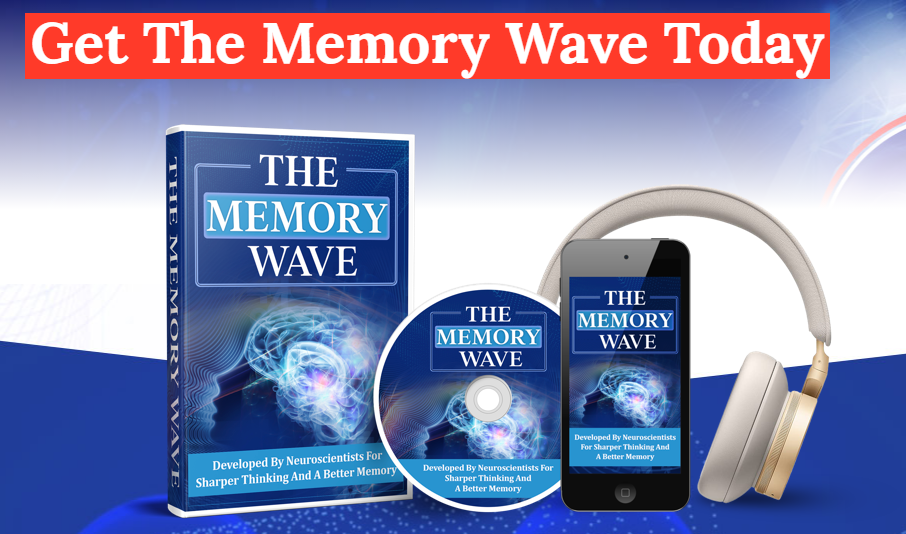The Genius Wave Reviews: Does It Really Work? The Ultimate Analysis

If you’re searching for a way to improve your focus, reduce stress, and boost productivity, you’ve likely come across Genius Wave. But does this program really work? In this comprehensive Genius Wave review, we’ll explore all aspects of this innovative product, from what it is and how it functions to its pros and cons, along with real user testimonials. Get ready to discover if Genius Wave is worth it and if it could be the solution you’ve been looking for.
What is Genius Wave?
The Genius Wave is a revolutionary audio program that uses brainwave technology to help people achieve a more focused and relaxed mental state. Developed by a team of experts in neuroscience and meditation, Genius Wave promises to deliver the benefits of deep meditation in just a few minutes a day.
How Does Genius Wave Work?
The program works through specially designed binaural audio tracks that synchronize the user’s brainwaves with specific frequencies. By listening to these audios with headphones, the brain is stimulated to enter mental states associated with concentration, creativity, and deep relaxation.Genius Wave is divided into 15-minute daily sessions that can be easily incorporated into the user’s routine. Each session is designed to address different aspects of mental and emotional well-being, such as stress reduction, improved focus, and increased productivity.
Dr. James Rivers: The Mind Behind Genius Wave

To truly understand the power and potential of Genius Wave, it’s essential to know about its creator, Dr. James Rivers. A renowned neuroscientist and meditation expert, Dr. Rivers has dedicated his career to unlocking the full potential of the human mind.
Background and Expertise
Dr. James Rivers holds a Ph.D. in Neuroscience from Stanford University and has over 20 years of experience in brain research. His work has primarily focused on the intersection of neurotechnology and mindfulness practices. Dr. Rivers has published numerous peer-reviewed articles on topics such as brainwave entrainment, cognitive enhancement, and stress reduction techniques.
The Journey to Genius Wave
The idea for Genius Wave came to Dr. Rivers during his research on meditation’s effects on brain function. He observed that while traditional meditation offered numerous benefits, many people struggled to maintain a consistent practice due to time constraints or difficulty in achieving a meditative state.This realization led Dr. Rivers to explore ways to make the benefits of deep meditation more accessible to everyone. By combining his knowledge of neuroscience with cutting-edge audio technology, he developed the foundational concept for Genius Wave.
Who is Genius Wave For?
Genius Wave is suitable for a wide range of people, including:
- Professionals looking to improve focus and productivity
- Students who want to optimize learning and memorization
- People suffering from stress and anxiety
- Individuals interested in meditation but struggling with traditional methods
- Anyone looking to improve their overall mental health and well-being
Pros and Cons of Genius Wave
Like any product, Genius Wave has its strengths and weaknesses. Let’s analyze the pros and cons to help you decide if this program is right for your needs.
Advantages
- Ease of use: Just listen to the audios for 15 minutes daily
- Science-based: Uses proven brainwave technology
- Flexibility: Can be used anywhere, anytime
- Quick results: Many users report benefits from the first sessions
- Variety of benefits: Improves focus, reduces stress, and increases productivity
Disadvantages
- Requires consistency: Regular use is necessary for best results
- Needs headphones: Cannot be used with speakers
- May not work for everyone: Like any method, effectiveness can vary
- Price: Some may consider the initial investment high
- Technology dependence: Requires a device to play the audios
Customer Testimonials and Results
To offer a more complete view of Genius Wave, we’ve gathered five testimonials from real users who shared their experiences with the program.



What Is Its Guarantee Policy?
One of the most compelling aspects of Genius Wave is its customer-friendly guarantee policy. The creators of Genius Wave are so confident in their product that they offer a comprehensive 60-day money-back guarantee. This risk-free trial period allows you to fully experience the benefits of the program without any financial commitment.Here’s what you need to know about the Genius Wave guarantee:
- Duration: The guarantee period lasts for a full 60 days from the date of purchase.
- Full Refund: If you’re not satisfied with Genius Wave for any reason, you can request a complete refund of your purchase price.
- No Questions Asked: The refund process is straightforward and hassle-free. You don’t need to provide any explanation for your decision to return the product.
- Ample Trial Time: 60 days gives you plenty of time to incorporate Genius Wave into your daily routine and assess its impact on your focus, stress levels, and overall well-being.
- Try All Features: During the guarantee period, you have full access to all Genius Wave features, allowing you to make an informed decision about its effectiveness for you.
- Easy Process: Requesting a refund is simple and can typically be done through their customer support team or website.
This robust guarantee demonstrates the confidence the creators have in Genius Wave and their commitment to customer satisfaction. It allows you to try the program without any risk, giving you peace of mind as you explore its potential benefits.Whether you’re curious about brainwave technology or seeking a new approach to improve your mental focus and reduce stress, the 60-day money-back guarantee makes Genius Wave an attractive option to consider. You have nothing to lose and potentially a world of improved mental clarity and productivity to gain.
The Importance of Authentic Theta Waves
It’s crucial to understand that the effectiveness of Genius Wave relies on the precise calibration of its Theta waves.
These are not ordinary audio files that can be copied or reproduced as simple MP3s.
The intricate frequencies and patterns used in Genius Wave are the result of extensive research and fine-tuning by Dr. Rivers and his team.Attempting to use copied or unofficial versions of these audio tracks will not produce the same results.
The sophisticated brainwave entrainment technology employed by Genius Wave requires the exact, uncompressed audio quality that only the official program provides. This is why it’s essential to purchase Genius Wave directly from the official website.
By buying from the official source, you ensure that you’re getting the authentic, high-quality audio files designed to synchronize with your brainwaves effectively. This guarantees the best possible results and the full benefits of the Genius Wave program.To access the genuine Genius Wave program and start your journey towards improved focus, reduced stress, and enhanced productivity, please visit the official website below:[Official Website Link: ]
Remember, investing in your mental well-being deserves the real deal. Don’t compromise on quality – choose the authentic Genius Wave for optimal results.
Transparency Notice: This article contains affiliate links. This means we may earn a small commission if you make a purchase through the links provided, at no extra cost to you. This partnership helps us maintain our website and continue providing free content. We want to emphasize that our review is unbiased and based on extensive research, regardless of any potential commission. We value your trust and are committed to always offering honest and helpful information
Scientific References:
- 1.
Venkatraman, R.. You’re 96 Percent Less Creative Than You Were as a Child. Here’s How to Reverse That. Inc.com.
https://www.inc.com/rohini-venkatraman/4-ways-to-get-back-creativity-you-had-as-a-kid.html - 2.
Kerley, J. Creative Inventive Design and Research. https://ntrs.nasa.gov/api/citations/19940029213/downloads/19940029213.pdf
- 3.
Robinson, K. “Do Schools Kill Creativity?”. https://www.youtube.com/watch?v=iG9CE55wbtY
- 4.
Uable, 28 August 2023. “The end of education.” https://medium.com/@connect_75384/the-end-of-education-94f3a39fe97c
- 5.
Church, D., Yang, A., Fannin, J., & Blickheuser, K. (2022). The biological dimensions of transcendent states: A randomized controlled trial. Frontiers in Psychology, 13, 928123. https://doi.org/10.3389/fpsyg.2022.928123
- 6.
Herrmann, C. S., Strüber, D., Helfrich, R. F., & Engel, A. K. (2016). EEG oscillations: From correlation to causality. International Journal of Psychophysiology, 103, 12-21. https://doi.org/10.1016/j.ijpsycho.2015.02.003
- 7.
Poe, G. R. (2017). Sleep Is for Forgetting. Journal of Neuroscience, 37(3), 464-473. https://doi.org/10.1523/JNEUROSCI.0820-16.2017
- 8.
Crivelli-Decker, J., Hsieh, L.-T., Clarke, A., & Ranganath, C. (Year). Theta oscillations promote temporal sequence learning. Neurobiology of Learning and Memory, Volume Number(Page Numbers). https://doi.org/10.1016/j.nlm.2018.05.001
- 9.
Zielinski, M. C., Tang, W., & Jadhav, S. P. (2020). The role of replay and theta sequences in mediating hippocampal-prefrontal interactions for memory and cognition. Hippocampus, 30(1), 60-72. https://doi.org/10.1002/hipo.22821
- 10.
Henao, D., Navarrete, M., Valderrama, M., & Le Van Quyen, M. (2020). Entrainment and synchronization of brain oscillations to auditory stimulations. Neuroscience Research, 156, 271-278. https://doi.org/10.1016/j.neures.2020.03.004
- 11.
Hanslmayr, S., Axmacher, N., & Inman, C. S. (2019). Modulating human memory via entrainment of brain oscillations. Trends in Neurosciences, 42(7), 485-499. https://doi.org/10.1016/j.tins.2019.04.004
- 12.
Michael, E., Santamaria Covarrubias, L., Leong, V., & Kourtzi, Z. (2023). Learning at your brain’s rhythm: individualized entrainment boosts learning for perceptual decisions. Cerebral Cortex, 33(9), 5382-5394. https://doi.org/10.1093/cercor/bhac426
- 13.
Trost, W., Frühholz, S., Schön, D., Labbé, C., Pichon, S., Grandjean, D., & Vuilleumier, P. (2014). Getting the beat: entrainment of brain activity by musical rhythm and pleasantness. NeuroImage, 103, 55-64. https://doi.org/10.1016/j.neuroimage.2014.09.009
- 14.
Trost, W. J., Labbé, C., & Grandjean, D. (2017). Rhythmic entrainment as a musical affect induction mechanism. Neuropsychologia, 96, 96-110. https://doi.org/10.1016/j.neuropsychologia.2017.01.004

